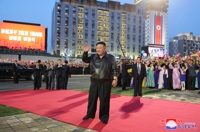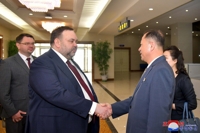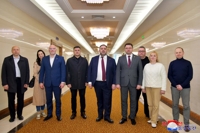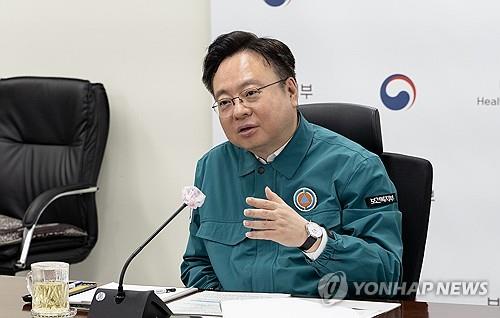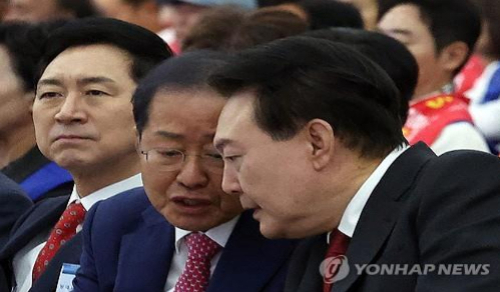N. Korean threat won't change even after end-of-war declaration: ex-USFK chief
By Song Sang-ho
SEOUL, Oct. 20 (Yonhap) -- North Korean security threats won't change even if a formal end to the 1950-53 Korean War is declared, a former U.S. Forces Korea (USFK) chief said Wednesday, as Seoul pushes for the political declaration to help revive nuclear diplomacy with Pyongyang.
During a meeting with security experts in Seoul, Curtis Scaparrotti, who led the USFK from 2013-2016, stressed the "complex" issue of the declaration should be discussed in a "careful" way, as tensions flared anew with the North's test this week of a new submarine-launched ballistic missile (SLBM).
Addressing an annual U.N. General Assembly session in New York last month, President Moon Jae-in renewed his proposal for the declaration, which Seoul officials have cast as an effective confidence-building measure with the North.
"We, sometimes, forget to go back and think about the threat that this alliance was formed to counter. That won't change the day after the declaration of the end of the war," Scaparrotti said at the meeting hosted by the Korea-U.S. Alliance Foundation and Korea Defense Veterans Association.
"It will still be present in the same way, in the same place most likely, and our responsibility as an alliance is to defend the Republic Korea and the people here," added the former commander who also led the U.N. Command (UNC) and the South Korea-U.S. Combined Forces Command during his stint as the USFK chief.
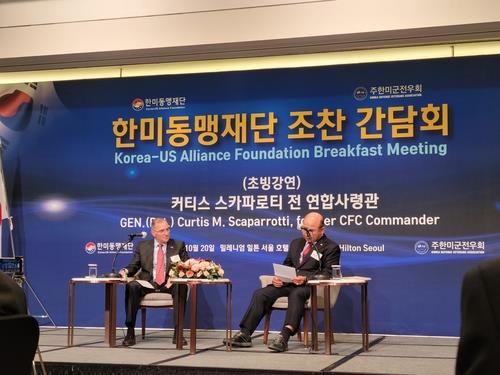
Curtis Scaparrotti (L), former commander of the U.S. Forces Korea, attends a breakfast meeting with security experts in Seoul on Oct. 20, 2021. (Yonhap)
Commenting on the North's launch on Tuesday of the SLBM, Scaparrotti said it poses "another problem" to the South Korea-U.S. alliance.
"That is a problem with a country that's irresponsible with these missiles and the nuclear capability its developed and certainly, it poses another problem to the alliance," the former commander said.
"A submarine-launched capability is another threat to the alliance and one that we have to make adjustments and that we have to now consider in terms of the defense of the Republic of Korea," he added, referring to South Korea's official name.
The proposal for the end-of-war declaration has stirred up a debate in Seoul and Washington.
Some say the declaration would pave the way for full-fledged efforts to foster lasting peace on the Korean Peninsula, while others warn that it could eventually lead to the dissolution of the UNC, an enforcer of the armistice that halted the war.
The issue was a key agenda item when Seoul's chief nuclear envoy, Noh Kyu-duk, and his U.S. and Japanese counterparts, Sung Kim and Takehiro Funakoshi, respectively -- met in Washington earlier this week to explore measures to incentivize the North to return to dialogue.
sshluck@yna.co.kr
(END)
-
 Defense chief says N. Korea's hypersonic missile 'unsuccessful' in last-stage glide flight
Defense chief says N. Korea's hypersonic missile 'unsuccessful' in last-stage glide flight -
 Relax, immerse yourself in scents at Venice Biennale's Korean Pavilion
Relax, immerse yourself in scents at Venice Biennale's Korean Pavilion -
 Overdue debut of Korean abstract art pioneer Yoo Young-kuk at Venice Biennale
Overdue debut of Korean abstract art pioneer Yoo Young-kuk at Venice Biennale -
 N. Korea has capability to genetically engineer biological military products: U.S. report
N. Korea has capability to genetically engineer biological military products: U.S. report -
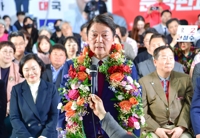 PPP lawmaker says entire Cabinet should resign over general elections defeat
PPP lawmaker says entire Cabinet should resign over general elections defeat
-
 Relax, immerse yourself in scents at Venice Biennale's Korean Pavilion
Relax, immerse yourself in scents at Venice Biennale's Korean Pavilion -
 Overdue debut of Korean abstract art pioneer Yoo Young-kuk at Venice Biennale
Overdue debut of Korean abstract art pioneer Yoo Young-kuk at Venice Biennale -
 Defense chief says N. Korea's hypersonic missile 'unsuccessful' in last-stage glide flight
Defense chief says N. Korea's hypersonic missile 'unsuccessful' in last-stage glide flight -
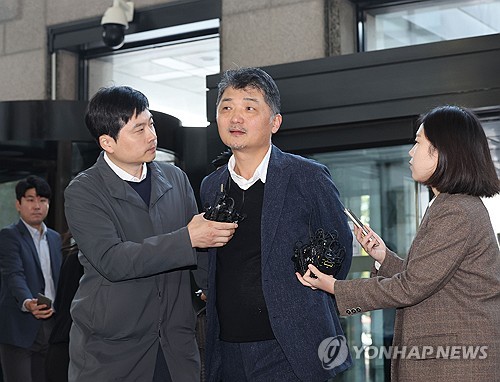 Questioning necessary for Kakao founder for suspected stock rigging: prosecution
Questioning necessary for Kakao founder for suspected stock rigging: prosecution -
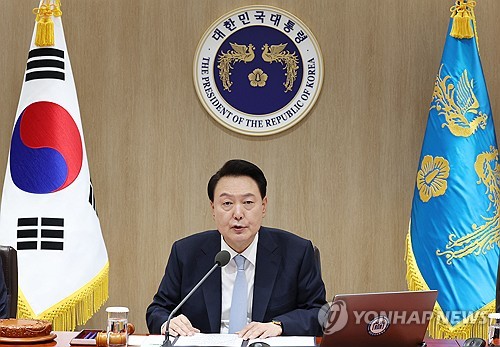 (LEAD) Yoon vows to improve communication with people after election defeat
(LEAD) Yoon vows to improve communication with people after election defeat
-
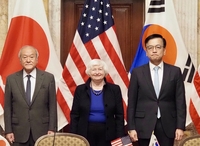 (4th LD) Finance chiefs of S. Korea, U.S., Japan recognize 'serious' concerns over 'sharp' won, yen depreciation
(4th LD) Finance chiefs of S. Korea, U.S., Japan recognize 'serious' concerns over 'sharp' won, yen depreciation -
 S. Korea to provide 100,000 tons of rice to 11 nations
S. Korea to provide 100,000 tons of rice to 11 nations -
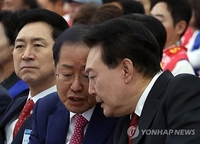 Yoon, Daegu mayor met to discuss post-election matters: sources
Yoon, Daegu mayor met to discuss post-election matters: sources -
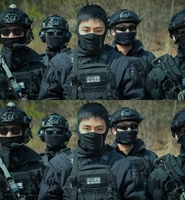 Facebook page unveils photos of BTS member V in counter-terrorism unit gear
Facebook page unveils photos of BTS member V in counter-terrorism unit gear -
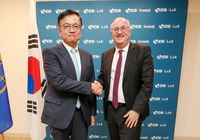 S. Korea to provide US$200 million in humanitarian aid to Ukraine this year
S. Korea to provide US$200 million in humanitarian aid to Ukraine this year

















